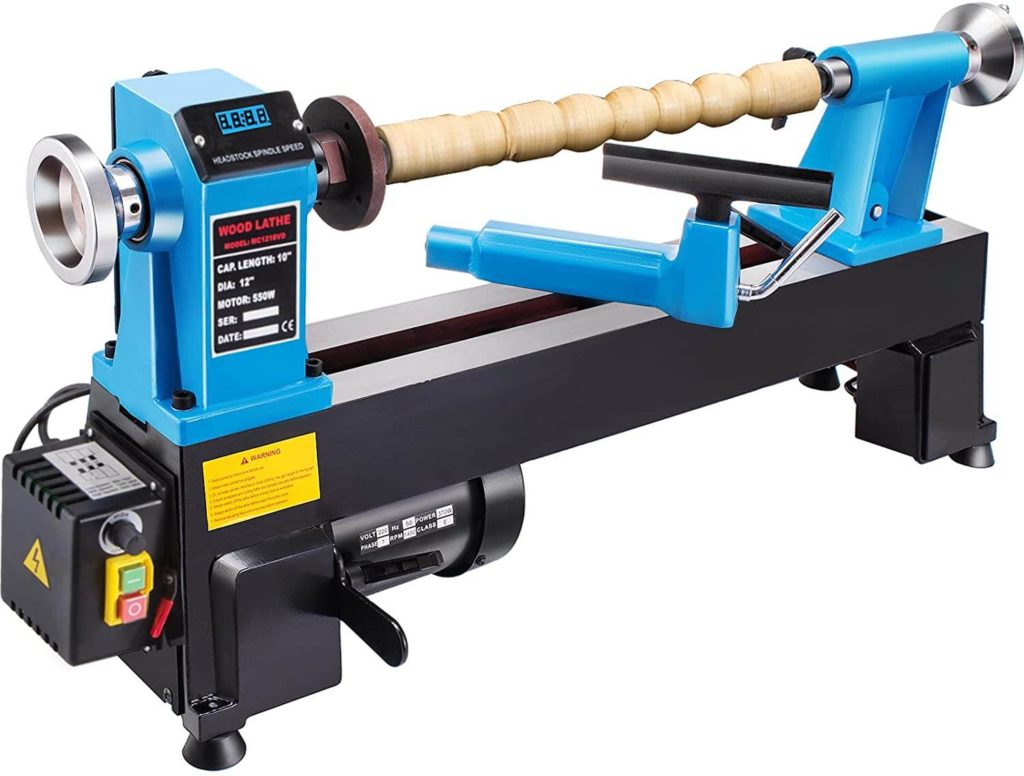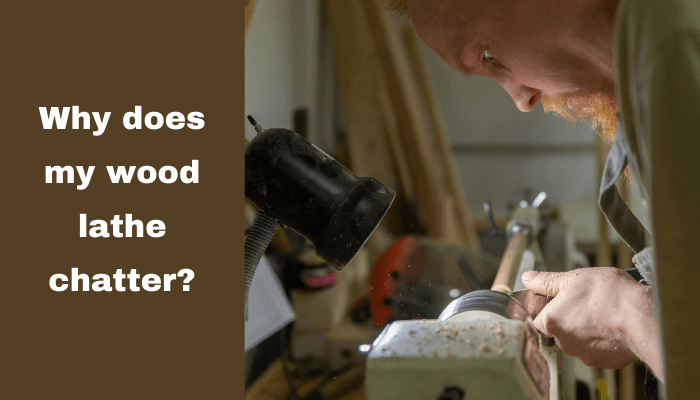Woodturning is a fun hobby for many people. However, it can get frustrating when the wood lathe starts to chatter and cause your project to come out with an uneven finish. Why does my wood lathe chatter? Why does it happen so often? How do you reduce this problem when turning? The answer lies in understanding what causes the chattering on a lathe.
In this blog post, we will explore why this happens and how to prevent it from happening.
Why Does My Wood Lathe Chatter?
There are many reasons why your wood lathe chatters. Some of them include:
- A poorly balanced piece – If your project is not well balanced it will cause more vibration as the headstock rotates and causes your wood to chatter on the bed or mandrel.
- The speed is too high for the size of the project – One way to reduce this problem is to reduce the speed of your lathe.
- The tool is not sharp – Which will cause a jerky movement on the wood which will lead to chatter. It is important that you have a sharp and well-maintained tool for this project.
- Wood type – Different types of wood require different speeds. Some woods are harder than others, this doesn’t mean that you can use a higher speed with these hardwoods to compensate for the increased difficulty in turning and reduce chatter.
The reason why some turners experience more chatter than others boils down to their skill level or the skill level of the tools they use.
A beginner turner will have more chatter than a professional because their technique is not as refined and refined woodturning skills like proper speed, tool sharpness, and knowing what type of lathe to buy for this project are all factors why some people experience less chatter.
How To Fix A Lathe That Chatters
There are many ways to fix a lathe that chatters. Turning on the slower speeds can help, but it also depends on what kind of project you have and how big it is as well as your skill level.
The first thing to remember when turning smaller projects at higher speeds is that they will chatter more than larger ones because there’s less weight on them.

The second thing to remember is that when you are turning at high speeds, your project will chatter more if it’s not well-balanced or if the tool isn’t sharp.
If these two things aren’t addressed then many turners may find themselves needing a different lathe for smaller projects. Sometimes they need to sharpen their tools more often.
The third thing to remember is that the speed of your lathe can also be a problem. If it’s not set up properly or you’re turning too fast for the type of project you’re working on.
You may find yourself having to slow down, increase feed rates, and reduce the depth of cut when this happens.
The last thing to remember is that the type of lathe you have can be a problem. Your project may not place enough weight on the bed or mandrel and therefore create more chatter, so an upgrade in equipment might need to happen as well.
Safety Tips For Operating A Wood Lathe
Chattering can cause some serious problems if you’re not being careful. The main safety tip is to always wear the right protective gear. Also, take your time with projects that are new or unfamiliar. They may require different settings than what you would use for a familiar project.
In addition, make sure to keep an eye on all of the parts of your lathe. As well as where tools are at all times because – for example, the wood can fly off of your lathe bed and hit you if it’s not secured.
If you don’t have a wood lathe yet we recommend you take a look at this article here. Choosing the right wood lathe for you can make a real difference. A high-quality machine with solid construction and decent weight will stop vibrations and chatter.
Conclusion
The best way to reduce chatter is by taking the time to sharpen your tools and learn how they work together.
This will make it easier for you to get a smoother finish on your wood projects no matter what type of project you are working with. If this sounds like too much work or something that takes away from the fun, remember that every hobby has its challenges.
It’s all about learning as much as possible so you can enjoy yourself more in the future. While at the same time producing better results than ever before. We hope these tips have helped!
